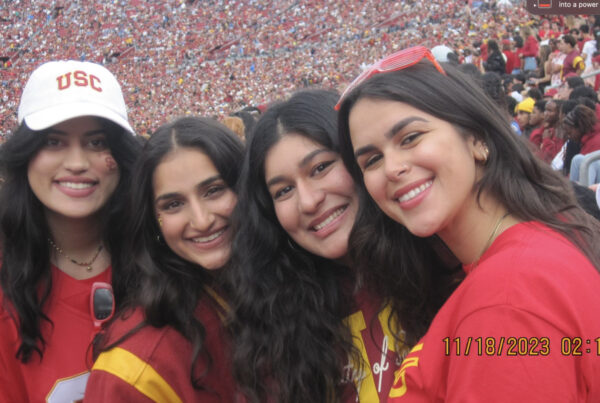When I first started at USC, I met up with a friend of mine from high school.
We weren’t very close friends, but he wanted to help make sure I was adjusting to college life and I appreciated the thought. He knew about my past coding experiences in high school, and he suggested I join one of the organizations he was a part of, the Center for AI in Society’s undergraduate branch (CAIS++). I had little experience with AI, but it sounded like an interesting group of people. I didn’t expect to get accepted, but I filled out an application nonetheless (partly because my friend was so adamant that I at least try). After a few weeks, I was surprised and ecstatic to learn that I somehow managed to get accepted.
Starting out in a competitive computer science club as a freshman biomedical engineering student was a bit daunting. I didn’t have nearly as much programming experience as most of the other new members, and I was a little bit worried I wouldn’t fit in well with the other people in the club. I was also nervous to be part of such a professional organization so early on in my college career . But when I went to the first meeting and met all my fellow club members, I felt more than welcomed by both the old members and the rest of the new cohort. Over my first few months at USC, my project group within the club became some of my closest friends. Even though we were all different ages and majors, we would constantly hang out together and give each other advice on various things going on in our lives.
When I decided I wanted to switch majors out of BME, the group of friends I had made in this club were my main source for support and advice. They knew both my skill sets and my interests, and they always had my well-being in mind. As I considered different majors for myself, my work in the club became a major point of inspiration. Although the work we had done as part of the organization was all computer science work, we had applied it to things that interested me: medical imaging, genome classifying, neuroscience, etc. The things we had researched showed me that even though I initially didn’t think I wanted to be a computer science major, I found ways to apply computer science to things I was interested in — in ways that were revolutionary. It inspired me to switch majors.
If I hadn’t met up with my friend, I probably would never have joined CAIS++. And if it weren’t for CAIS++, I probably would still be stuck in BME, feeling somewhat unfulfilled with what I was doing. I might never have realized that I was interested in machine learning and neuroscience. I would not have been on the executive board of a competitive engineering organization as a freshman. I wouldn’t be in my current (amazing!) research position. I would likely never have met some of the best friends I’ve ever had. The ways that this organization has positively impacted my life have taught me to always try for something, no matter how slim you think your chances are. The work I’ve done and the connections I’ve made as a part of this organization have not only helped me adjust to college life, but they’ve changed my entire career path. And I wouldn’t give up my experiences with this club for the world.




